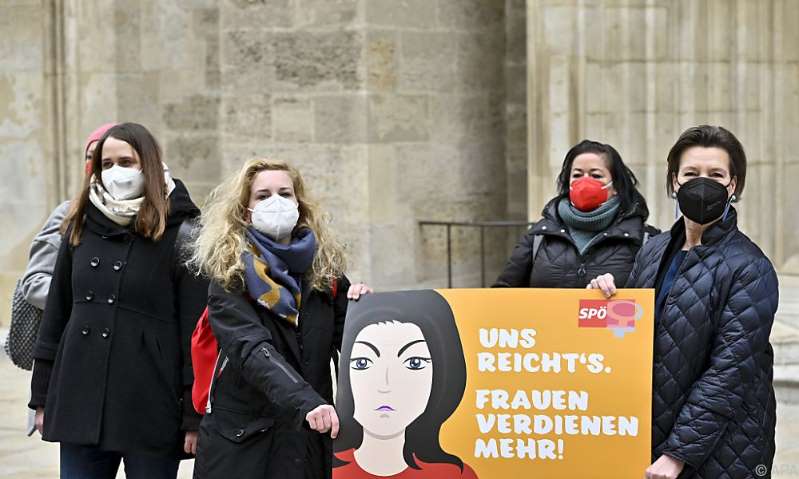Women's Day was the first occasion on Monday for a special session of the Austrian National Council. Even if SPÖ boss Pamela Rendi-Wagner and Chancellor Sebastian Kurz (ÖVP) did not disagree on the diagnosis of the particularly difficult situation of women in the pandemic, there was enough room for dissonance. The FPÖ and NEOS were also dissatisfied.

Image: APA
Women's Day is not a day of parties and celebrations, but a day of struggle and protest for more justice and less inequality, stressed Rendi-Wagner. The unequal treatment of women continued in the crisis and is even worsening, emphasized the SPÖ leader. The following applies at various levels: “The most important thing is that action is taken quickly and consistently.”
The “Urgent Motion”, which is the basis of the special session, was extensively designed by the Social Democrats. Among other things, an economic stimulus package with special consideration of the concerns of female employees and a maintenance guarantee are called for. In addition, there are targeted support for women in the labor market, more money for protection against violence and childcare facilities, an emergency aid package for single parents and measures to improve the current situation of one-person companies. Rendi-Wagner described an increase in unemployment benefits as “more necessary than ever”.
In return, Kurz pointed out that the women's budget had increased by almost 50 percent. There is also a record budget from the finance minister for the labor market and re-entry. “We are the best in the world when it comes to aid, and that's a good thing,” said the Chancellor of his government. He hopes that future opening steps will bring women back into employment accordingly.
Above all, the SPÖ and FPÖ were extremely dissatisfied with Kurz's speech, also because he used the debate to condemn violence and anti-Semitism at the recent anti-corona protests in Vienna. SPÖ women's boss Gabriele Heinisch-Hosek counted only seven minutes of speeches dedicated to women by the Chancellor and accused him of disrespect. There was a lack of deeds by all members of the government, and Women's Minister Susanne Raab (ÖVP) is “a bit in a twilight sleep”.
Your FP colleague Rosa Ecker saw it similarly. Briefly “dropped the mask” and showed how little importance women actually are to him. She called for a change of direction, but also an end to the corona measures so that the women could fight family celebrations again without restrictions. Henrike Brandstötter (NEOS) criticized the fact that the desire for equality often still looks like a vision of another planet, for example when girls in the country want to participate in the voluntary fire brigade.
Here she met with the Greens' club chairwoman, Sigrid Maurer. She spoke of centuries of Sisyphean work and warned of an anti-feminist backlash in the crisis. “For us it's women's day 365 days a year,” she emphasized. She defended the Chancellor's remarks on the weekend demos. Wherever anti-Semites and neo-fascists marched, contempt for women also played a role, said Maurer.
On the part of the ÖVP, Elisabeth Pfurtscheller defended the Federal Chancellor. Department head Raab then recalled broad support measures for women and “unprecedented family benefits” in the crisis. “I want every girl in Austria to know that she can become what she wants,” she underlined, referring to a new funding initiative for scientific professions endowed with 1.3 million euros.

